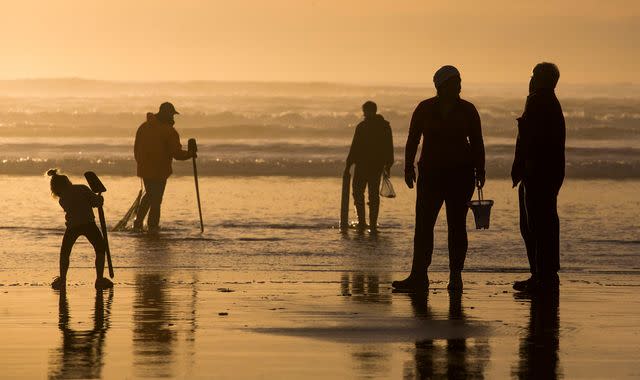Oregon suffers 'unprecedented' shellfish poisoning outbreak as at least 20 people taken ill

An "unprecedented" outbreak of shellfish poisoning has forced the authorities in Oregon to close the entire state's coastline to mussel harvesting.
At least 20 people have been struck down with paralytic shellfish poisoning (PSP), which is caused by saxitoxin, a naturally occurring toxin produced by algae.
The state has also closed parts of the coast to harvesting razor clams, bay clams and oysters.
"We've had a paralytic shellfish poisoning event in Oregon that we have never seen in the state," Matthew Hunter, shellfish programme manager for the Oregon Department of Fish and Wildlife, said on Friday.
"The outbreak's unprecedented nature was due both to the number of species impacted and the number of people falling ill," he said.
The state fish and wildlife department and agriculture department announced the new closures on Thursday.
Elevated levels of toxins were first detected in shellfish on the state's central and north coasts on 17 May, Mr Hunter said.
State health officials are asking people who have harvested or eaten Oregon shellfish since 13 May to fill out a survey that's meant to help investigators identify the cause of the outbreak and the number of people taken ill.
PSP is caused by saxitoxin, a naturally occurring toxin produced by algae, according to the Oregon Health Authority.
People who eat shellfish contaminated with high levels of saxitoxins usually begin feeling unwell within 30 to 60 minutes, the agency said. Symptoms include numbness in the mouth and lips, vomiting, diarrhoea, and even shortness of breath and an irregular heartbeat in severe cases.
Read more on Sky News:
Shiloh Jolie-Pitt files to change name
Mike Tyson v Jake Paul bout postponed
There is no antidote to PSP, but treatment for severe cases can require mechanical ventilators to help patients breathe.
The authorities warn that cooking or freezing contaminated shellfish doesn't kill the toxins and doesn't make it safe to eat.
Officials in the neighbouring state of Washington have also closed their Pacific coastline to the harvesting of shellfish, including mussels, clams, scallops and oysters, a shellfish safety map produced by the Washington state health department showed.
The Oregon agriculture department says it will continue testing for shellfish toxins at least twice a month as tides and weather permit.
Reopening an area closed for biotoxins requires two consecutive tests that show toxin levels are below a certain threshold, according to the agency.


